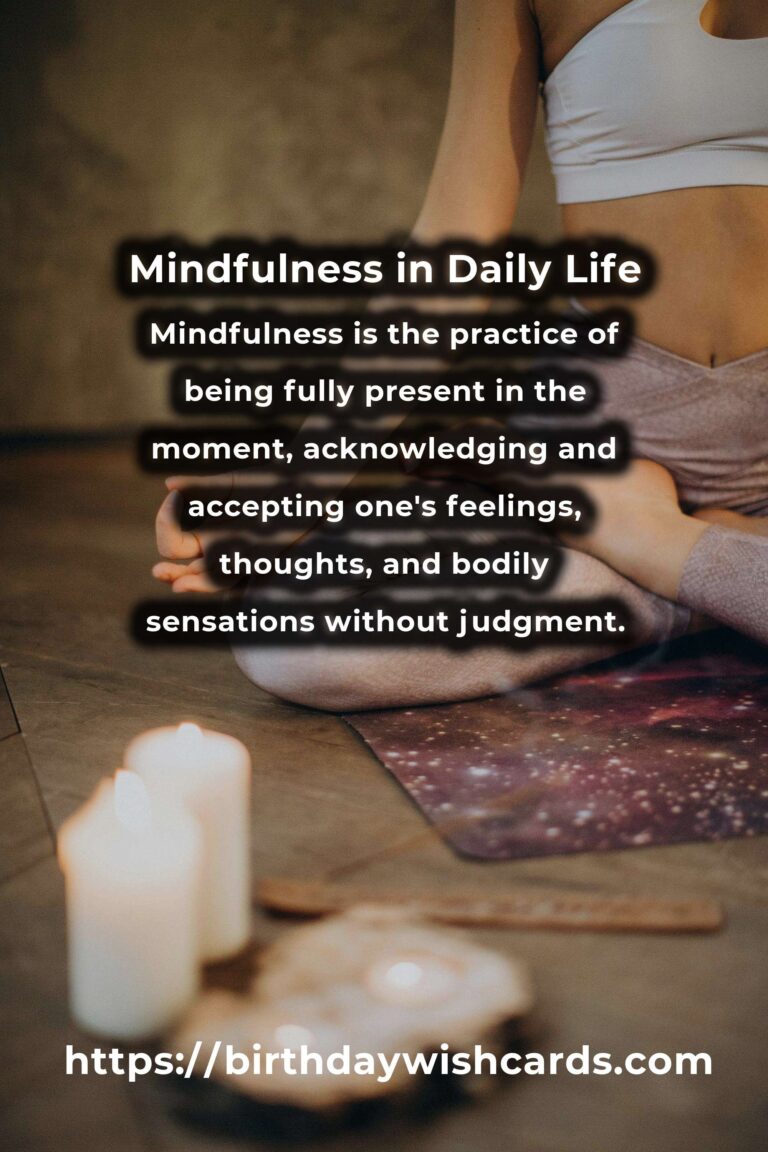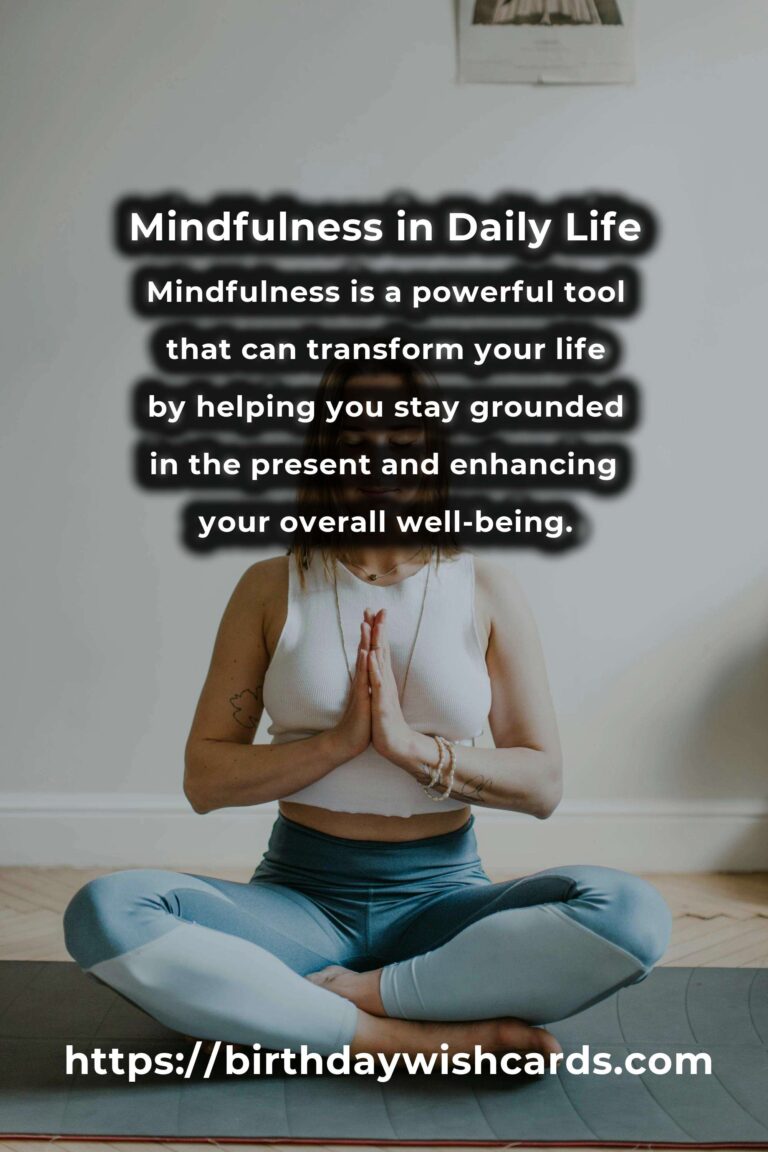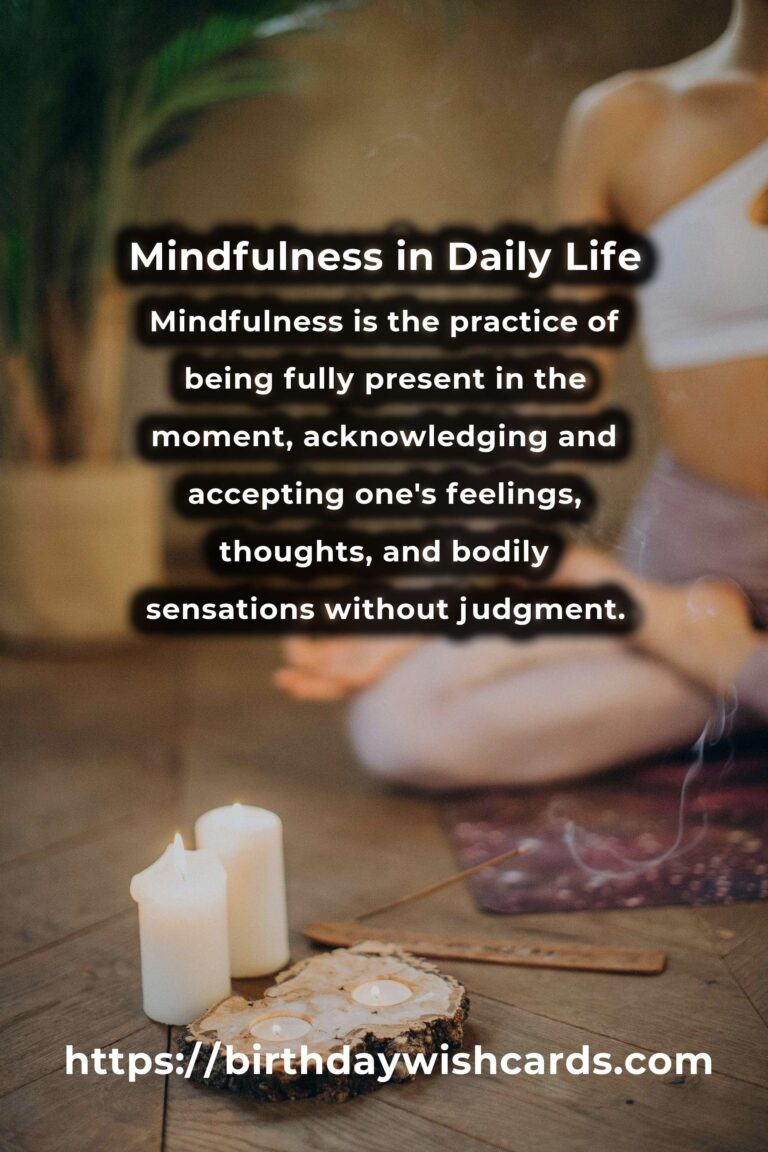
In today’s fast-paced world, the concept of mindfulness has gained significant attention as individuals seek ways to reduce stress and enhance their well-being. Mindfulness is the practice of being fully present in the moment, acknowledging and accepting one’s feelings, thoughts, and bodily sensations without judgment. This ancient practice, rooted in Buddhist traditions, has become a valuable tool for improving mental health, enhancing focus, and fostering a sense of peace.
What is Mindfulness?
Mindfulness is a state of active, open attention to the present. It involves observing thoughts and feelings from a distance, without labeling them as good or bad. Instead of letting your life pass you by, mindfulness means living in the moment and awakening to experience. It is about maintaining a moment-by-moment awareness of our thoughts, feelings, bodily sensations, and surrounding environment.
The Benefits of Mindfulness
Practicing mindfulness offers numerous benefits that can improve both mental and physical health. Some of the key benefits include:
- Stress Reduction: Mindfulness helps decrease stress by allowing individuals to focus on the present rather than worrying about the past or future.
- Improved Focus: Regular mindfulness practice can enhance concentration and attention, making it easier to complete tasks efficiently.
- Emotional Regulation: Mindfulness helps individuals understand and manage their emotions better, leading to improved mood and emotional stability.
- Better Sleep: By reducing stress and promoting relaxation, mindfulness can improve sleep quality and duration.
- Enhanced Relationships: Mindfulness encourages empathy and understanding, leading to healthier, more fulfilling relationships.
Mindfulness Practices for Everyday Life
Incorporating mindfulness into daily life doesn’t require a significant time commitment. Here are some simple practices you can start today:
1. Mindful Breathing
One of the most accessible mindfulness practices is mindful breathing. Simply take a few moments to focus on your breath, noticing each inhale and exhale. This practice can be done anywhere and helps anchor you to the present moment.
2. Body Scan Meditation
This practice involves lying down comfortably and focusing on different parts of the body, noticing any sensations or tension. A body scan meditation helps increase body awareness and promotes relaxation.
3. Mindful Eating
Pay attention to the taste, texture, and aroma of your food. Eating mindfully can enhance the experience of eating and help prevent overeating by recognizing hunger and fullness cues.
4. Walking Meditation
Walking meditation involves paying attention to the movement of your legs and feet, the rhythm of your breath, and the sensations in your body. It can be a powerful way to practice mindfulness while staying active.
5. Gratitude Journaling
Writing down things you are grateful for each day can shift your focus from negative to positive aspects of life, enhancing mindfulness and promoting a sense of contentment.
How to Cultivate a Mindfulness Practice
Starting a mindfulness practice can be simple and rewarding. Here are some tips to help you get started:
- Start Small: Begin with just a few minutes a day and gradually increase the time as you become more comfortable with the practice.
- Be Consistent: Set aside a specific time each day for mindfulness practice to build consistency and make it a habit.
- Find a Quiet Space: Choose a quiet, comfortable space where you can practice without distractions.
- Be Patient: Mindfulness is a skill that takes time to develop. Be patient with yourself as you learn and grow.
- Seek Guidance: Consider using mindfulness apps or attending classes to help guide your practice.
Conclusion
Mindfulness is a powerful tool that can transform your life by helping you stay grounded in the present and enhancing your overall well-being. By incorporating mindfulness practices into your daily routine, you can reduce stress, improve focus, and foster a deeper connection with yourself and the world around you. Start small, be consistent, and enjoy the journey to a more mindful way of living.
Mindfulness is the practice of being fully present in the moment, acknowledging and accepting one’s feelings, thoughts, and bodily sensations without judgment. Practicing mindfulness offers numerous benefits that can improve both mental and physical health. Mindfulness helps decrease stress by allowing individuals to focus on the present rather than worrying about the past or future. Incorporating mindfulness into daily life doesn’t require a significant time commitment. Mindfulness is a powerful tool that can transform your life by helping you stay grounded in the present and enhancing your overall well-being.
#Mindfulness #MentalHealth #WellBeing #StressReduction #MindfulLiving












